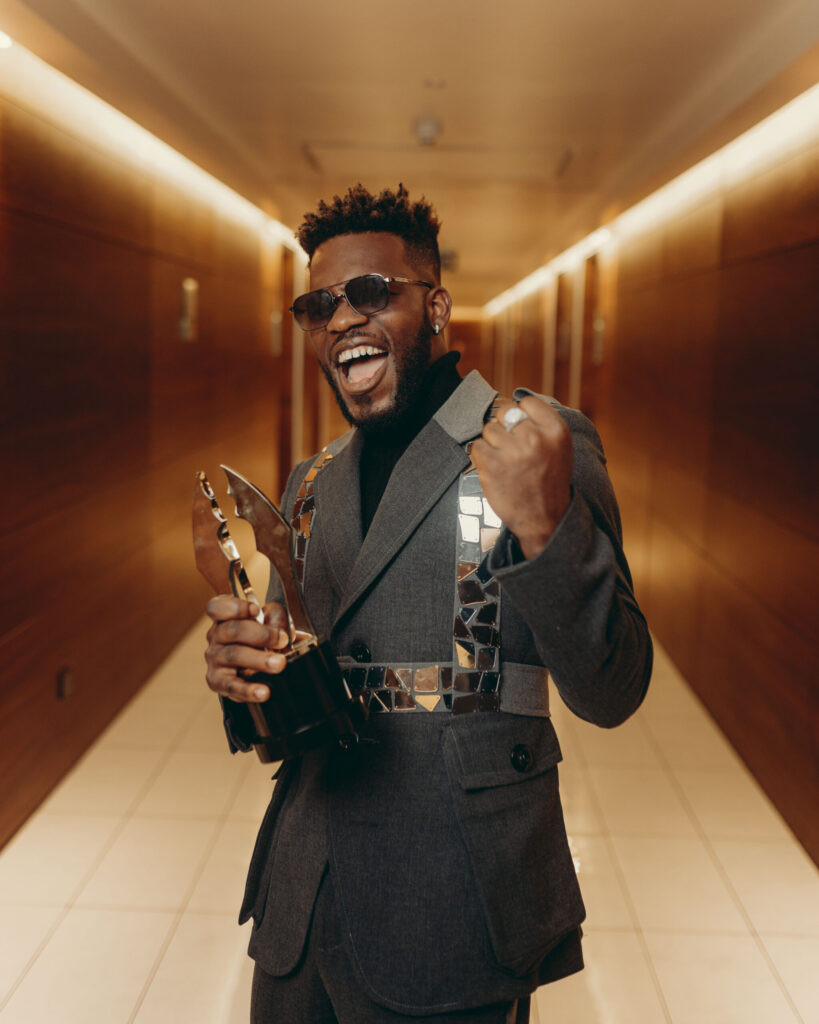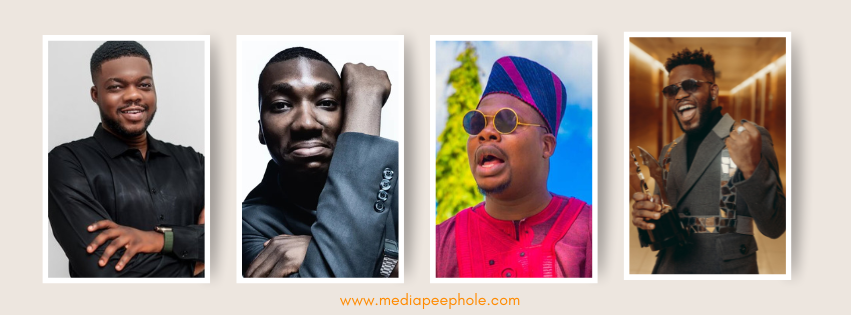What do Broda Shaggi, Mr Macaroni, and Layi Wasabi have in common?
They all started out making skits on Instagram and YouTube, and now they’re walking red carpets, starring in top-grossing Nollywood films, and winning awards. From social media comedy to the silver screen, Nigerian influencers are crossing over into acting like never before. But is this just a passing trend, or a permanent change in how Nollywood works?
Let’s dig into the influencer-to-actor pipeline, and what it says about the future of Nigerian entertainment.
🎬 From Skits to Stardom: The New Path to Nollywood

Once upon a time, breaking into Nollywood required theatre training, years of networking, and a little luck. Today, a ring light and a viral character might be all you need.
Take Broda Shaggi, for example. Known for his over-the-top, hilarious street interviews, he quickly transitioned into film with standout roles in Fate of Alakada, Omo Ghetto: The Saga, and Inside Life. He’s now an Africa Magic Viewers’ Choice Award (AMVCA) winner—and a full-fledged actor.
Mr Macaroni (a.k.a. “Freaky Freaky Daddy”) has made similar moves, landing roles in Aníkúlápó, Made in Heaven, and The Perfect Arrangement, while still keeping his loyal digital fanbase active.
These aren’t one-off flukes. A growing number of digital stars: Lasisi Elenu, Layi Wasabi, Brainjotter, are becoming legitimate Nollywood contenders. And producers are taking notice.
📈 Why Influencers Are Nollywood’s New Favorites
So why is Nollywood welcoming influencers with open arms?
1. Built-in Audiences
Influencers bring huge online followings. With millions of followers already invested in their stories, they offer instant marketing for any project they’re cast in.
2. Camera-Ready Talent
These creators are used to producing content fast. They’re comfortable in front of the camera, often shoot their own videos, and understand timing, delivery, and character-building, even if they didn’t learn it in a classroom.
3. Return on Investment
For filmmakers, it’s about visibility and profit. A social media star with viral recognition can help boost ticket sales, streaming views, and engagement metrics.
In short, influencers are seen as low-risk, high-reward casting options.
⚠️ The Criticism: Are We Choosing Followers Over Talent?
Not everyone is sold on this trend.
In 2025, respected broadcaster and media personality Emma Ugolee sparked controversy by calling out Nollywood’s obsession with influencer casting. He called it “sickening” that filmmakers now prioritize follower counts over acting skills, warning that real talent is being overlooked.
His frustration echoed a growing sentiment among trained actors and industry purists, who feel that years of hard work and professionalism are being passed over for trend-driven visibility.
“There’s a difference between content creation and performance art,” said one Lagos-based film director anonymously. “A 60-second skit is not the same as carrying a film scene-by-scene.”
But here’s the nuance: not all influencers are bad actors. Many are honing their craft, enrolling in acting workshops, and showing surprising range. In fact, some critics argue that their daily content creation is its own form of informal training.
🖥️ Beyond Nollywood: The Rise of Digital-First Actors
Influencers aren’t just breaking into traditional film, they’re also changing the model entirely.
Actors like Bimbo Ademoye and Sandra Okunzuwa have built thriving careers using platforms like YouTube, creating mini-series, web shows, and short films that attract millions of views.
- Bimbo Ademoye: Over 1.1 million subscribers, with over 135 million channel views.
- Sandra Okunzuwa: Nearly 900,000 subscribers and counting.
By bypassing traditional film gatekeepers, they’ve found creative freedom and a direct connection to fans. The lines between Nollywood and digital media are blurring fast, and audiences don’t seem to mind.
Trend or Structural Shift?
This crossover isn’t just a social fad, it’s part of a larger industry shift driven by:
- Digital media dominance
- Youth-led audiences hungry for relatability
- A broken traditional pipeline
As Nollywood evolves, so do the expectations around stardom. The influencer-as-actor isn’t a one-season gimmick, it’s becoming part of the system. And producers are now casting with visibility and virality in mind.
But we may see a correction: a growing push to balance influence with training, encouraging influencers to take acting seriously, or risk being sidelined when trends shift.
💬 Quick FAQ: What Everyone’s Asking
-
Why are influencers being cast in Nollywood films?
Because they bring massive followings, are comfortable on camera, and can boost a movie’s reach and ROI.
-
Are influencers better than traditional actors?
Not necessarily. Some are great, others need work. But their popularity gives them a platform most trained actors can’t access without exposure.
-
Will this trend last?
Yes—with refinements. As digital and traditional platforms merge, the influencer-actor hybrid is likely here to stay.
Final Thoughts: A New Type of Star is Emerging
The rise of influencers in Nollywood isn’t just about trendiness, it’s about transformation.
We’re entering an era where fame is fluid, platforms are powerful, and audiences decide who deserves the spotlight. Traditional actors still matter, but they’re no longer the only route. Influencers are creating new pathways, and Nollywood is evolving to meet them.
So is it a trend?
No. It’s a reset.




